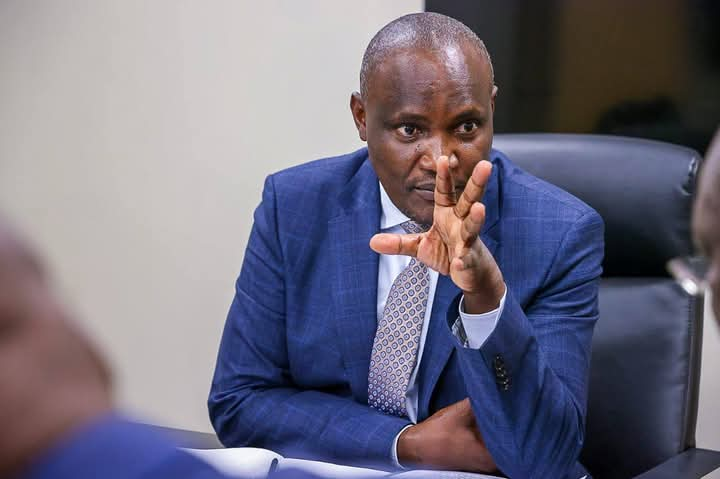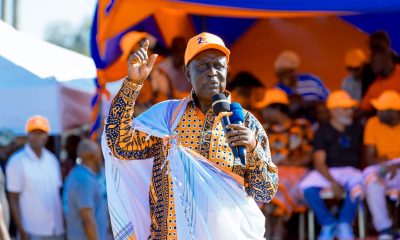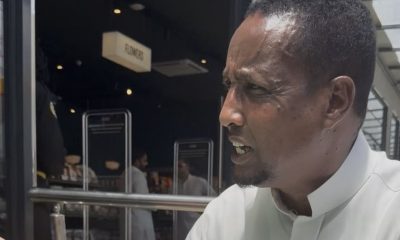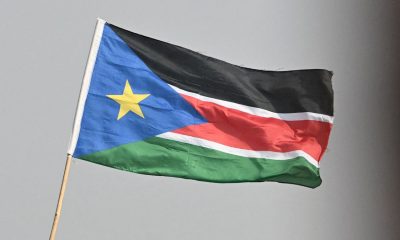Economy
Kenya Poised to Claim Title as East Africa’s Economic Powerhouse, IMF Projects
The economic power shift stems largely from dramatic currency movements in both countries.

Kenya is on track to surpass Ethiopia as East Africa’s largest economy this year, according to new projections from the International Monetary Fund (IMF), marking a significant shift in the region’s economic landscape.
The Fund’s latest World Economic Outlook estimates that Kenya’s gross domestic product will reach $132 billion in 2025, outpacing Ethiopia’s projected $117 billion.
This economic milestone comes amid contrasting currency fortunes between the two nations and highlights Kenya’s resilience despite recent domestic challenges.
The economic power shift stems largely from dramatic currency movements in both countries.
While Ethiopia recently abandoned its half-century policy of tightly controlling the birr’s value—leading to a more than 55% depreciation against the dollar since liberalization in July—Kenya’s shilling has charted an opposite course.
The Kenyan shilling strengthened by approximately 21% last year, making it the world’s best-performing currency in 2024.
This remarkable appreciation has bolstered Kenya’s economic standing when measured in dollar terms.
The shilling’s strength has been further enhanced by Kenya’s successful $1.5 billion bond issuance in February, which helped increase the country’s gross reserves.
Higher diaspora remittances and export receipts over the past year have also contributed to the currency’s robust performance, according to Kenya’s Treasury.
Ethiopia’s Economic Reforms
Ethiopia’s currency devaluation, while reducing its GDP in dollar terms, was a strategic move that has yielded important benefits.
The exchange rate liberalization enabled the Horn of Africa nation to secure a $3.4 billion loan from the IMF and an impressive $16.6 billion from the World Bank.
Perhaps more critically, it opened the door to crucial debt restructuring negotiations.
Ethiopia is now in talks with creditors regarding at least half of its $28.9 billion external debt, potentially providing much-needed fiscal breathing room.
Kenya’s Domestic Challenges
Kenya’s economic ascendance comes despite significant domestic turbulence.
Last year, the government’s aggressive plan to increase taxes and reduce the budget deficit triggered widespread Gen Z protests that resulted in at least 60 deaths.
President William Ruto’s administration was forced to backtrack on several proposed measures, complicating its ability to meet targets under a four-year $3.6 billion IMF program.
Kenya ultimately had to terminate the program prematurely, forgoing approximately $850 million in financing. Officials are currently negotiating a new program with the Fund.
“Kenya’s economic resilience in the face of fiscal and social challenges demonstrates the underlying strength of its diversified economy,” said Treasury Cabinet Secretary John Mbadi, speaking at 2025 IMF–World Bank Spring Meetings in Washington. “While we’ve had to recalibrate our fiscal consolidation timeline, our fundamental growth trajectory remains strong.”
IMF projections suggest Kenya’s economic lead over Ethiopia could widen in coming years, with the gap potentially growing to nearly $100 billion by 2030.
However, both nations face headwinds from escalating global trade tensions.
The IMF recently lowered its global growth forecast for 2025 to 2.8% from 3.3%, citing rising protectionism, particularly higher US tariffs that are expected to trigger demand shocks among America’s trading partners.
Sub-Saharan Africa’s GDP is now projected to rise by just 3.8% this year, the slowest pace since the COVID-19 pandemic in 2020.
For Kenya, maintaining fiscal discipline while addressing development needs will remain a delicate balancing act.
For Ethiopia, successfully implementing its ambitious economic reforms while managing public expectations will be equally challenging.
As this economic transition unfolds, the regional implications extend beyond national pride.
Kenya’s economic leadership position could enhance its ability to influence regional integration efforts and trade policies within the East African Community and beyond.
Kenya Insights allows guest blogging, if you want to be published on Kenya’s most authoritative and accurate blog, have an expose, news TIPS, story angles, human interest stories, drop us an email on [email protected] or via Telegram
-

 Business2 days ago
Business2 days agoKakuzi Investors Face Massive Loss as Land Commission Drops Bombshell Order to Surrender Quarter of Productive Estate
-

 Politics2 weeks ago
Politics2 weeks agoODM Shuts Door on Gachagua Alliance, Signals Long-Term Deal with Ruto Ahead of 2027
-

 News2 weeks ago
News2 weeks agoBusinessman Adan Haji Isaack on Spot for Allegedly Harassing City Professor Over Disputed Land
-

 Investigations2 weeks ago
Investigations2 weeks agoPeter Agoro Legal Battles Reveal How EACC Framed a Whistleblower to Protect Corrupt Elites
-

 News2 weeks ago
News2 weeks agoKenyan Activists Bob Njagi and Nicholas Oyoo Released After 38 Days in Ugandan Custody
-

 Investigations2 weeks ago
Investigations2 weeks agoEXCLUSIVE: The $1.7 Billion Oil Heist That’s Starving South Sudan While Elites Feast on Blood Money
-

 Investigations3 days ago
Investigations3 days agoINSIDER LEAK REVEALS ROT AT KWS TOP EXECUTIVES
-

 Politics1 week ago
Politics1 week agoRuto Set to Dominate ODM@20 in Mombasa, Positioning Himself as Raila Odinga’s Political Heir Ahead of 2027



















